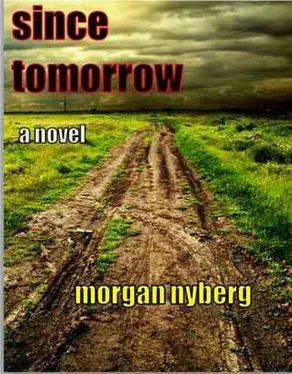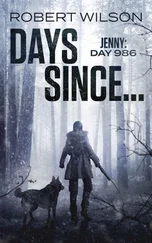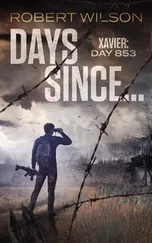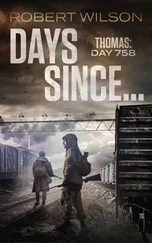Still looking down, the man said “You said you’d pay me.”
Frost said to Wing “Just a minute.” He left King there and walked back through the crowd, who were all watching in silence. He found the woman he had crashed into. He led her by the elbow to Wing’s wagon and filled her blackberry-stained bowl with potatoes. Wing hurried over and added the half-pair of scissors and the broken swan.
Frost gave Wing a pat on the shoulder and went back through the crowd and out into the rain. He said to the man “I’m going to give you a better price than you ever imagined. I’m going to give you back your health. Let’s go.”
The man stiffened and his eyes widened. He suddenly looked capable of running fast and far. But Frost indicated the direction with his sword, and King growled, and they started walking.
Frost looked back into the mob under the bridge. He saw Bailey open one of his black plastic bags and reach in with both hands and lift out the carcasses of two sheep and hold them up and then set them back in. He saw the skagger hand Bailey the bone-handled hunting knife and take the bag. The woman with the spirit level was there too. After haggling a moment she gave it to Bailey and took his bag of wool. The woman the knife had been stolen from stood nearby. She looked as broken as the half of Frost’s wire-rim glasses that she held in her hand.
Frost and King and the man followed the wide muddy trail north toward the foot of the bridge.
It was cold and clear and quiet, and there was no smell except the smell of the river. The pale dead grass was wet with dew. The thistles drooped dark and soggy. Will had his own poncho, and he had sweatpants and sandals. Shaughnessy wore two ripped and dirty pullover shirts and a wool kilt and shoe-like things of plastic that Will tried not to look at. They were heading in the direction of the river.
Shaughnessy said “Someone died at your place.”
“Fire” said Will, and after a while “I never liked her. But I never wanted her to….” He looked away. Then he looked up at the empty blue sky and said “I bet it snows this winter.”
“Snows? You crazy?” answered Shaughnessy.
“It’s pretty cold.”
“Not cold enough.”
Will said dreamily “Everythin’ is all covered in white. Kind of like a big soft white blanket. And my grampa says if you go out in the middle of the night you can still see, because the snow reflects the light.”
“There ain’t been snow since my dad was young. You’re crazy.”
“And it’s all calm and peaceful and quiet.”
Will’s coarse black hair was trimmed to above his ears. He was thin and swarthy. Shaughnessy was taller and sturdier and had a heap of almost white hair that hung in tangles over blue eyes in which there was a fleeting cast of pain or of anger. He said “It ain’t going to snow, and you know it.”
“Hushed” said Will. “It’s hushed.” He shook his head sharply, as if putting an end to the reverie, then said “You really ought to come to my place. I’ve got some real books. There’s one about war.”
Shaughnessy said “Why don’t you say somethin’ that makes sense. You know I can’t go to your place.”
“I know, but you ought to.”
“Well I can’t.”
“But how come you can’t?”
“This again? You know why. My dad says so.” He sounded both bored and exasperated.
Will said “But I don’t understand why not.”
“Yes you do. We talked about this already. A hundred times.”
“Explain it to me again. Maybe I’ll understand this time.”
As they walked, sunlight played on some lengths of looped copper wire that each boy held in his right hand.
Shaughnessy said “It’s because your grampa is a liberal.”
A rabbit darted away. It had been invisible in the dead grass. It bounded and dodged toward a blackberry patch.
“I know” said Will “but what is that? What is a liberal? That’s the part I don’t get. Why does it keep you from comin’ to my place?”
“I don’t get it either. Like I said a hundred times. All’s I know is I can’t go to your place because your grandfather is a liberal.”
They were silent for a while, each boy appearing to think aggressively about the matter. Then Will said “I’ve got an idea. If you came to my place you could see for yourself that my grampa isn’t a liberal. Also, I could show you how to read. Then you could go home and tell your dad my grampa isn’t a liberal, and you could show him that you could read, and he’d let you come and play whenever you feel like it so you can get an education.”
Shaughnessy stopped to glare down at Will. “I thought you were smart.”
“Well, I am.”
“If I don’t know what a liberal is, how would I know if your grampa isn’t one?”
They walked on. In the grass near the path Shaughnessy saw a piece of a branch, thick as an arm. He kicked it. It crumbled. He said “Rotten. I thought maybe we could burn it.”
Will said “You could come to my place and not tell your dad.”
“Naw, he’s pretty sick. I’d feel bad lyin’ to him.”
“I wonder why your dad thinks grampa is a liberal. Do you think someone told him?”
“Oh, I know someone told him.”
They stopped. “Who? Who told him?”
“Bundy told him. When he come to pray for my dad to get better.”
“Damn” said Will as they started walking again. “That Bundy. First he wrecks it so you can’t come to my place. Then he lets the skaggers take his bridge. Did you know he’s a bundamentalist?”
“I’m not surprised” said Shaughnessy.
Both boys laughed. Shaughnessy said “Whatever that is. It must be the opposite of a liberal. And Solomon is in love with your sister.”
“I know” said Will gloomily. “That’s another damn thing.”
Something touched Will’s hand, and looking down he saw that Blackie was now walking beside him. Shaughnessy said “How come the dogs don’t get caught in the snares?”
“Grampa teaches them to smell the wire.”
“Your grampa’s smart.”
“He’s real smart.”
Just at the river’s edge was a garden. There were sections of carrots and turnips still in the soil. The garden was edged with concrete building blocks or pieces of blocks. A path led through the garden toward the river, through the dark soil and the potato leaves left there to decay. The path was also lined with blocks.
A wooden barge floated near the bank. The boys stood admiring it for a minute. It was about sixty feet long and was moored sideways to the shore. The wood above the waterline was well rotted, and there were deep ragged holes where chunks had fallen out. The near side of the barge rested on the riverbed ten feet out. From each of the near corners a rusted cable ran to the bank and disappeared in blackberry vines. A walkway of two-by-fours ran at an angle from the bank up to the deck of the barge.
“Daniel Charlie made that for her” said Will. “It’s called a gangplank.”
Will went first up the walkway, then Shaughnessy. Blackie refused to attempt it and sat on the bank with his ears erect, looking worried, whining a little.
The deck of the barge sloped away slightly. A dozen large plastic flower pots lined its edges, and in each pot there was a rose plant. On a few of the plants there were still some blossoms, red and orange. In the middle of the deck sat a ragged-looking shack of corrugated fibreglass panels, concrete blocks, vinyl siding and sheets of polyethylene. An old woman emerged.
She had on rubber boots and very baggy trousers of undyed canvas tied with nylon cord. She wore a flannel logger’s shirt on which the red and black plaid was just visible. Her white hair hung long and loose. She was badly stooped, and she used a length of rusted reinforcing bar to help her as she hobbled toward the boys. One of her eyes was clouded. The other was as blue as the winter sky.
Читать дальше

![Деннис Лихэйн - Когда под ногами бездна [Since We Fell ru]](/books/25722/dennis-lihejn-kogda-pod-nogami-bezdna-since-we-fe-thumb.webp)










